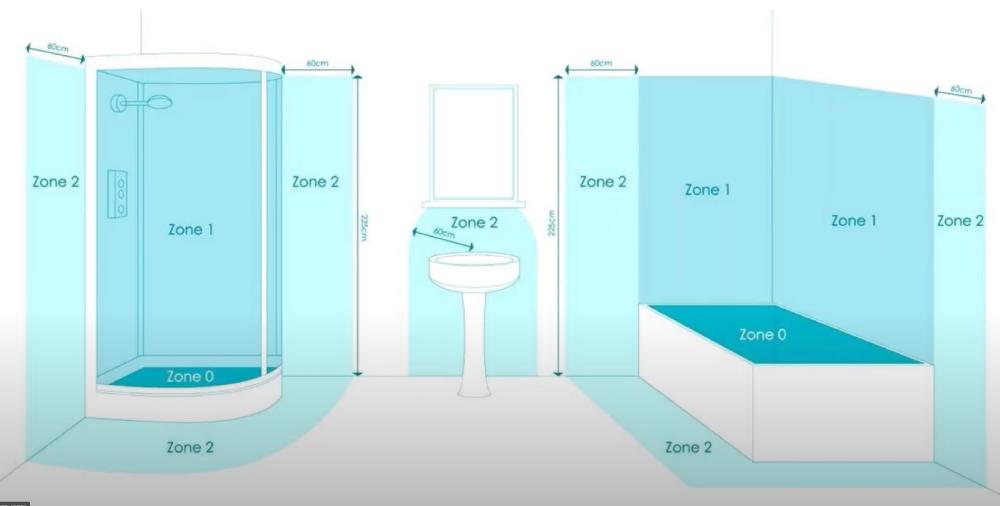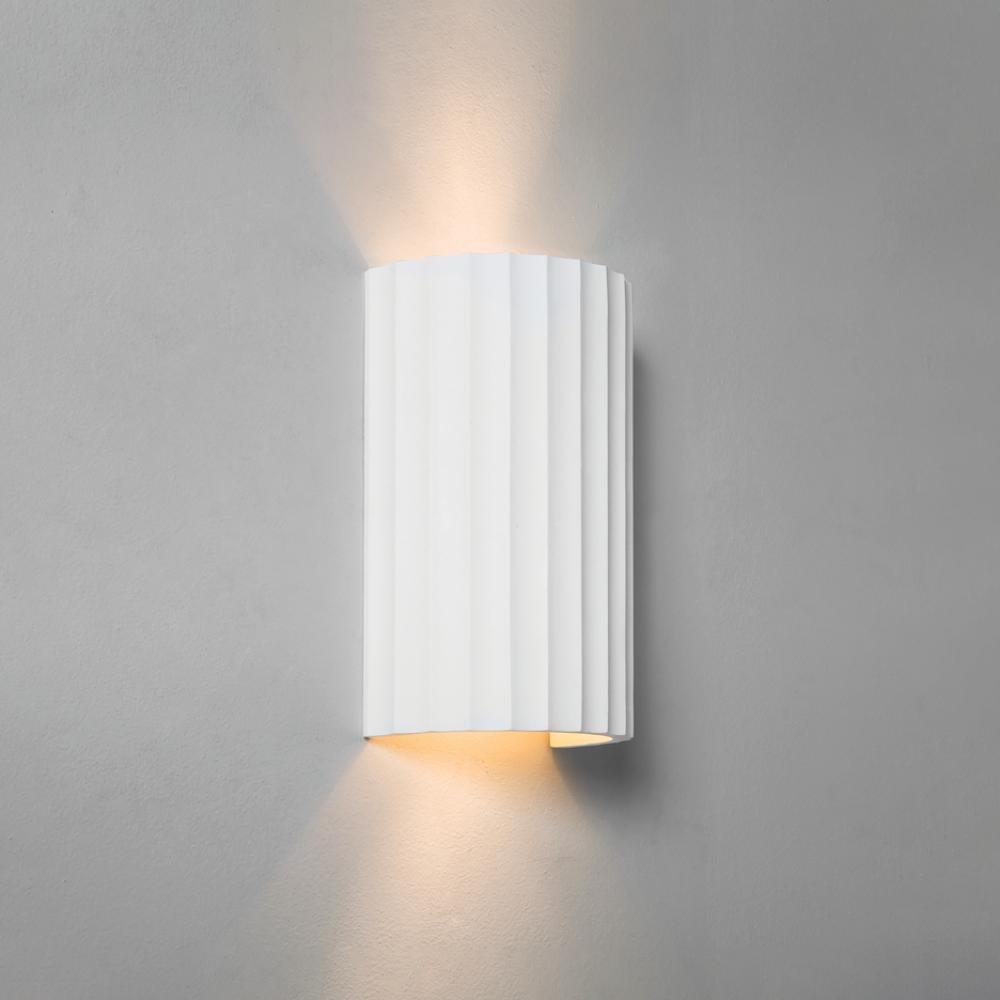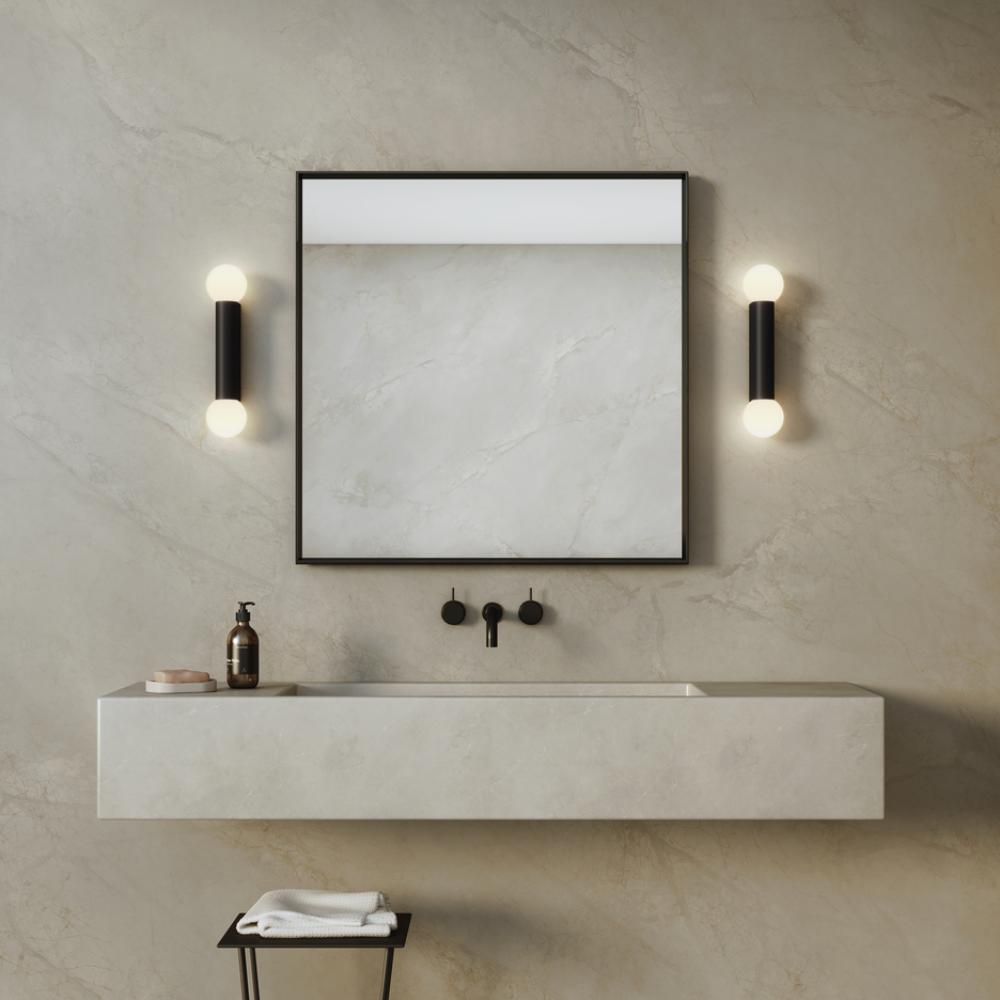One of the common questions our customers ask us is related to bathroom lighting, and quite a few of them ask us about IP20-rated lights, and whether they are suitable for use in the bathroom.
Are IP20 rated light fittings suitable for use in the bathroom? Can I install an such a light in the bathroom?
Questions like these are posed every day, especially since there are some amazing such ceiling lights or wall lamps that the customers really love, and they would like to install them in the bathroom.
Let's explore this question together and see what is the correct answer to, Are IP20-rated Lights Suitable for Bathroom Lighting?
Note: at Sparks we sell a wide range of IP20 rated lights, IP44 rated light fittings, and IP65 rated lights.
IP Rating and Bathroom Zones - Rules and Regulations

When installing anything in the bathroom in the UK we need to know the current regulations, which are contained in the 18th Edition Wiring Regs.
You may not know them, but it is good to know what wiring regulations apply to installing lights and light fittings in the bathroom, otherwise we put ourselves in great danger, because water and electricity should never mix.
Electrical hazards and electrical short circuits due to the mixing of water and electricity should be avoided at any cost since they pose great danger to human life.
So what do the wiring regulations say about lighting in the bathroom?
The 18th Edition Wiring Regulations define certain bathroom zones - see the image.
Note: we have introduced the IP ratings, IP zoning, and Bathroom Zones - see the articles linked.
The bathroom zones are three:
- Zone 0 is the area inside the bathtub or in the shower. There is a lot of splashing water and even more, it can be submerged in water, so special light fittings need to be installed here.
- Zone 1 is the area above and around the bathtub and the shower, up to 2.25m above the floor. This area is also under the reach of splashing water.
- Zone 2 is the area of up to 60cm beyond the bathtub edge, basically 60cm outside zone 1. There is some reach of water here, but not as much.
The outside zone, the zone outside all these areas, where in general there is no splashing water - some call it "zone 3" while others just call it "the zone outside zones 1 and 2".
The current wiring regulations state that specific IP-rated light fittings can be installed in the three zones for the protection of human life. The following IP ratings are recommended:
- In Zone 0 it is recommended to use IP67, total immersion-proof light fittings, and 12v (low voltage) light fittings are recommended. For our safety, it is not recommended to install any light fitting that is under IPx7 in zone 0.
- In zone 1 it is recommended to use light fittings having an IP rating of minimum IP45, and IP65 light fittings are warmly recommended in this zone, since water can still reach the light fittings.
- In zone 2, the area stretching 0.6m outside the perimeter of the bath and up to a height of 2.25 from the floor, it is recommended to use light fittings that have an IP rating of IP44, which are protected from water drops.
In the zones outside these three, no IP rating is required, so an IP20-rated fitting can be safely installed. However, for safety reasons, it's best to have IP44-rated light fittings outside of the bathroom zones.
IP20 Lights - are they good for the Bathroom?
Coming back to our original question, are IP20 rated lights suitable for installation in the bathroom?
See the picture above: can this Kymi 220 Plaster Wall Light (Paintable) Ridged Semi-Cylindrical Fitting be installed in the bathroom?
Buy the Kymi 220 Plaster Wall Light
We may like its finish and shape, but is it safe to be in the bathroom? Based on the current wiring regulations, IP20 rated lights can be installed outside the bathroom zones, that is, away from the reach of splashing or dripping water.
Depending on the size of the bathroom, there are many spaces and areas where IP20-rated wall lights or ceiling lights can be installed.
These areas are not reached by water jets nor are they at the risk of being splashed or sprinkled with water, so IP20 rated light fittings can safely be installed.
However, for the sake of safety, it is best to use IP44-rated lights in the bathroom, even outside the bathroom zones.
If you want to be on the safe side, we warmly recommend IP44-rated ceiling lights and wall lamps in the bathroom, outside the bathroom zones.
Note: we at Sparks are not qualified to offer professional advice, but we can apply the current regulations and offer advice based on our experience. Before installing any light fitting in the bathroom, please consult with a registered electrician - send them the link to where the light fitting can be viewed, and they will advise.
If you are planning to clean the bathroom light fitting with a spray of water or maybe wash it, it is best to have the light fittings rated to a minimum IP65.
If there is no reach of splashing water where the light fitting is, and it is outside the bathroom zones defined in the wiring regulations, such lights are suitable.
In Conclusion: Always Be Safe in the Bathroom
In conclusion, it is entirely up to you when installing IP20 rated lights in the bathroom - outside the bathroom zones.
For example, the Ortona Twin Matt Black Bathroom Wall Lamp with Opal-Glass Globe Shades IP44 can safely be used in the bathroom, since it is IP44-rated.
Buy the Ortona Twin Matt Black Wall Lamp
We would advise staying on the safe side, that is, using IP44-rated light fittings even outside the bathroom zones.
You never know, with the steam rising from the bathtub, the vapours of air coming out of the shower, water can reach the light fittings located outside the bathroom zones, and electrical hazards can happen.
And whatever you do in the bathroom, always consult a registered electrician to both install and advise on the light fittings you are allowed to install there.






